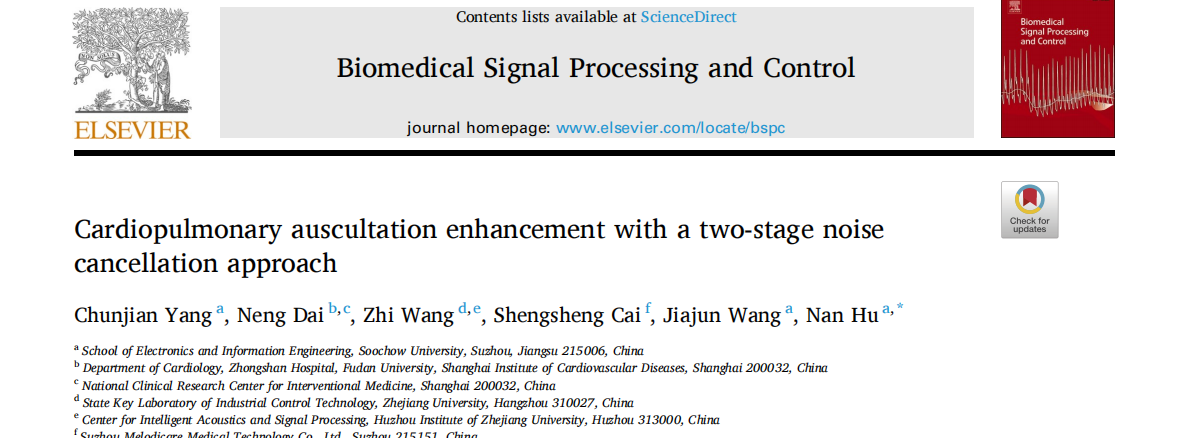Cardiopulmonary auscultation enhancement with a two stage noise cancellation approach
For cardiopulmonary auscultation using electronic stethoscopes, signal quality is a key point. During signal acquisition various background sounds may be inevitably captured, severely degrading the auscultation signal quality. In the existing auscultation denoising methods, conventional adaptive noise canceller (ANC) approaches or shallow-layer artificial neural networks were used, while advanced noise cancellation methods still need to be developed to fulfill real auscultation requirements. In this paper, we propose a novel denoising method for cardiopulmonary auscultation enhancement, which is a two-stage approach with a cascade of ANC and deep neural networks (DNNs). In the first stage, the ANC provides coarsely denoised auscultation signal and estimated interference. In the second stage, a DNN termed the dual-channel interactive noise cancellation network (DINC-Net) is proposed, which exploits both the coarsely denoised auscultation signal and the estimated interference. The DINC-Net consists of two deep encoders extracting features of dual-channel inputs separately, one dual-channel interactive denoising module generating a denoising mask, and one deep decoder giving the denoised output. The performance of the proposed method is evaluated through synthetic data generated using two public heart/lung sound databases, and the great promotion in normalized covariance measure (NCM) and frequency-weighted segmental signal-to-noise ratio (fwSNRseg) has been verified, compared to the existing methods. An online noise cancellation prototype is further developed on an electronic stethoscope, and the signal quality promotion is shown on healthy subjects as well as aortic stenosis patients.


